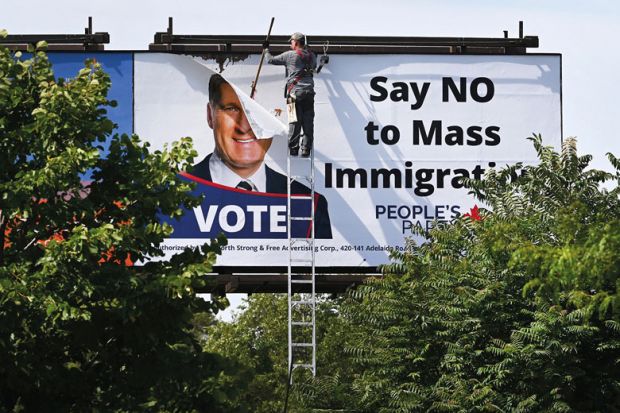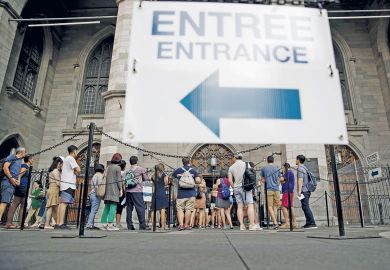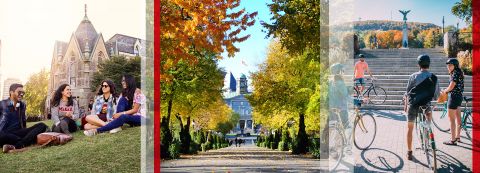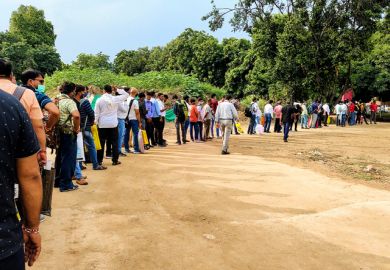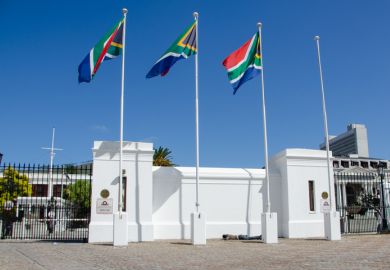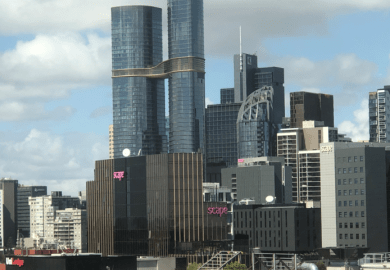Canadian higher education is being hit by a combination of political forces that it regards as manageable for now but might yet betray a dangerous fundamental weakening of public support for its mission and value.
The major emerging challenges of late include the federal government’s order reducing international student visas, and moves in some key provinces seen as undermining institutional health, notably Quebec’s decision to punish non-French instruction.
Canada’s universities remain respected worldwide and likely will sustain that reputation amid the political turmoil, said Philip Landon, the interim head of Universities Canada, the nation’s main higher education association.
But the tumult shows hints of rising discontent among the wider public in Canada, Mr Landon acknowledged, given that the severity of the policy actions under way seems greater than the threat they are ostensibly addressing, and that the chief political opposition to the Trudeau administration might take them even further.
Canada has long demonstrated a national consensus in favour of immigration, given its clear demographic needs, Mr Landon told Times Higher Education. “The risk would be that we start to lose that consensus more broadly,” he said.
The challenges arising in recent years include funding restraints in such conservative-led provinces as Ontario and Alberta. The more recent problems include Quebec’s conservative government trying to defend the French language by sharply raising tuition fees for English-speaking students from the nation’s other provinces; and prime minister Justin Trudeau’s imposing sharp limits on international student visas, citing dire housing shortages and abuses by a limited number of private institutions that apparently have been enrolling students as a back-door way of helping them to obtain residency and work permits. Some of those campuses have seen single-year enrolment gains of 50 per cent to 100 per cent.
In a moment seen as a startling departure from Canada’s global reputation for politeness, the presidents of two institutions, Conestoga College and Sault College, traded public insults over responsibility for the Trudeau government’s move to limit visas. Such an exchange may be a reflection of the times, Mr Landon said. “The system is under stress because of these measures, and so you’re seeing more stressful behaviour,” he said.
The implementation of the student visa cap has been especially problematic, Mr Landon said, because it requires provinces to craft plans for allocating the cutbacks among their institutions and then implementing the process. That has left campus leaders and prospective students waiting in limbo just as applications and acceptances are being decided for the coming academic year.
Mr Landon alternated between his expressions of confidence that students worldwide were savvy enough to recognise a domestic political spat and not let it cloud their clear understanding of the value of a Canadian degree, and his recognition that the politics reflect actual concerns among the Canadian people that might not be going away soon.
The issue is about more than just higher education, he said, “because Canada does need immigrants – the demographics show it – and so it becomes very important that we don’t turn into a country that is seemingly unwelcoming to immigrants or to students”.
The political manoeuvres also reflect a dangerous impression among Canada’s policymakers, at both the federal and provincial levels, that they can repeatedly use higher education as their public battleground without the country suffering major costs, Mr Landon said. “There’s a complacency that, ‘Oh, the universities will be fine,’” he said.
Register to continue
Why register?
- Registration is free and only takes a moment
- Once registered, you can read 3 articles a month
- Sign up for our newsletter
Subscribe
Or subscribe for unlimited access to:
- Unlimited access to news, views, insights & reviews
- Digital editions
- Digital access to THE’s university and college rankings analysis
Already registered or a current subscriber? Login
